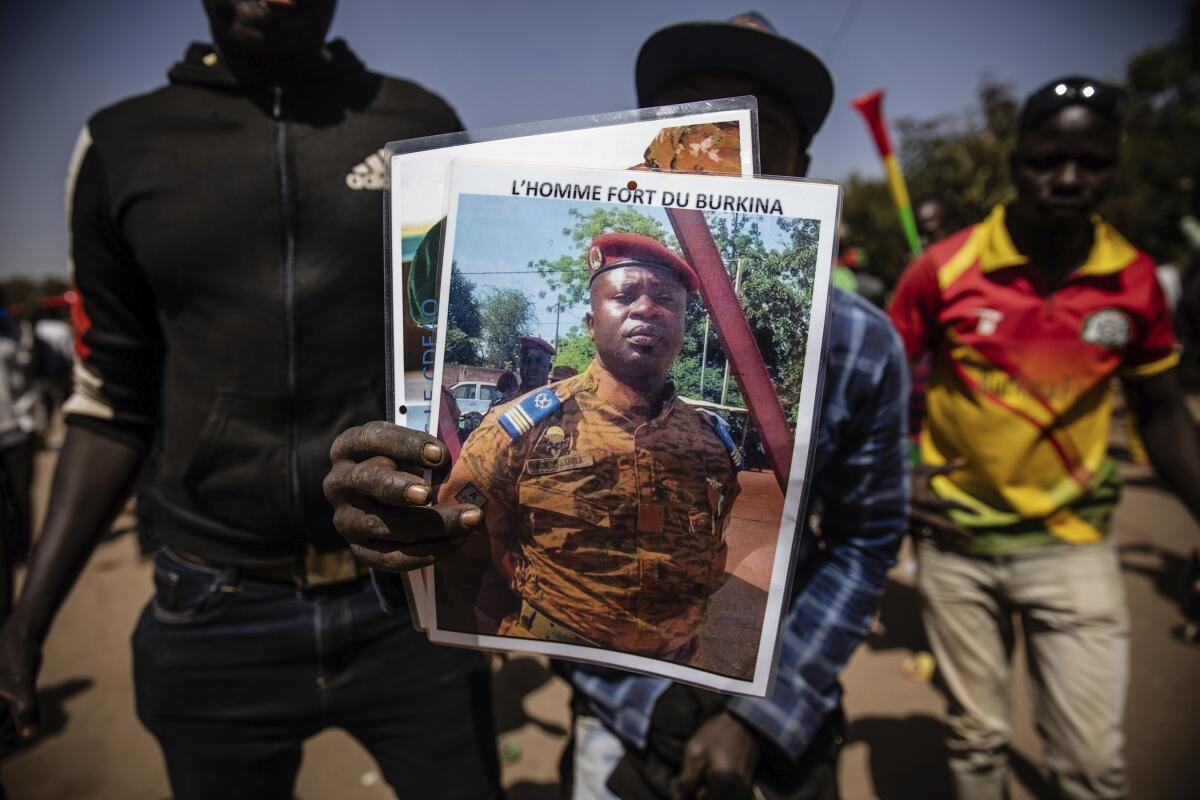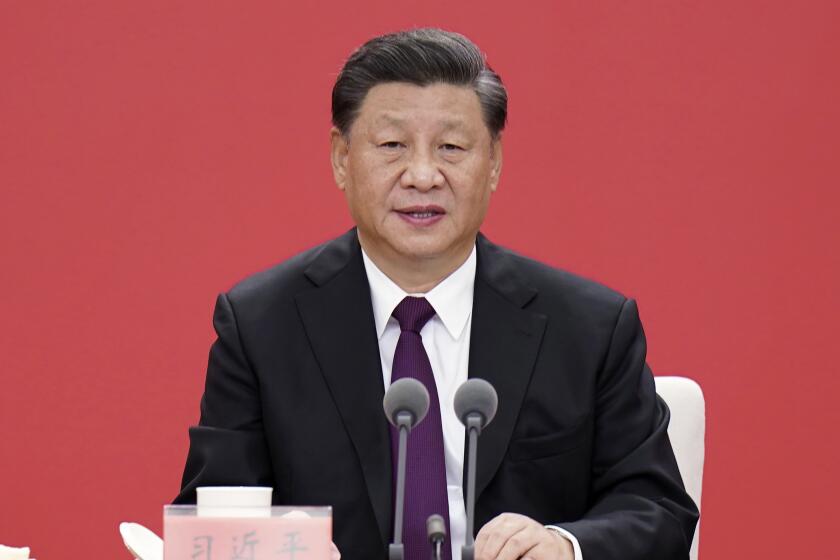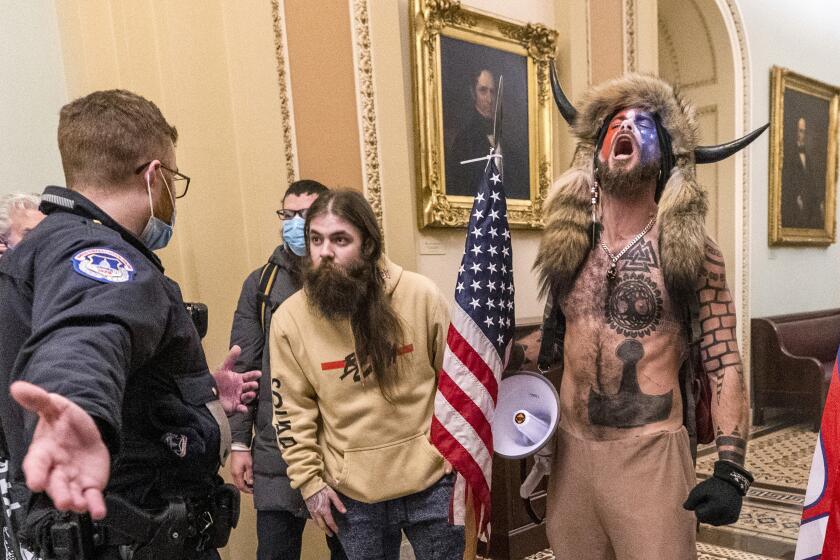Column: Is the world becoming more free and democratic — or backsliding?

- Share via
You don’t need a PhD in international relations to know that freedom, democracy and human rights are on the defensive around the world, and losing ground in many countries.
It’s not just the big crises we read about every day — the ongoing atrocities in Ukraine, crackdowns in hotspots like Hong Kong, bitter political polarization in the United States, illiberality in Israel, Hungary and Turkey, to name just a few.
It’s also the smaller upheavals that get less attention — for example, two coups last year in Burkina Faso, gang-driven chaos in Haiti and continuing assaults on democracy in Tunisia, Nicaragua, Guinea and Myanmar.
Opinion Columnist
Nicholas Goldberg
Nicholas Goldberg served 11 years as editor of the editorial page and is a former editor of the Op-Ed page and Sunday Opinion section.
Obviously, we live in a world of brutality and turmoil. But in the aggregate and over time, are things getting better or worse for freedom and democracy?
It’s a tough question to answer. But Freedom House’s annual report, “Freedom in the World,” takes a stab at it. For 50 years, the nonpartisan NGO has worked to create a reasonably consistent scale against which to measure the march, forward and backward, of freedom across the globe.
To do it, more than 150 experts spend months assigning numerical values, country by country, to everything from the rights of opposition parties to the empowerment of trade unions to the independence of judicial systems. They consider the robustness of electoral protections, the breadth of personal autonomy and the status of freedom of religion, expression and movement, as well as many other indicators of “political rights” and “civil liberties.”
So what does the organization conclude in its 2023 report, which is being released Thursday?
Xi Jinping’s Xinhua news agency used my work to help promote its distorted vision of life in the U.S. and China.
There’s good news and bad news, of course, but the bad news is pretty bad: For 17 years in a row, the world has been struggling against a tide of de-democratization. Since 2006, the number of countries experiencing declines in political rights and civil liberties has outpaced those experiencing advances. Countries in every region have seen declines. (Since 2010, the United States‘ score dropped 11 points, from 94 to 83 out of 100, about 10 points below historical peers like Germany and the U.K.)
In 2022, according to the latest report, bad news continued to roll in: 35 countries saw their political rights and civil liberties deteriorate, and two not only declined but changed categories for the worse, with Peru moving from a designation of “free” to “partly free” and Burkina Faso moving from “partly free to “not free.”
Burkina Faso showed the steepest decline of any country in 2022, falling 23 points, thanks to a coup d’etat that led to the suspension of the nation’s constitution, the dissolution of the legislature and the imposition of a national curfew — followed by a second coup eight months later that resulted in the dismissal of the transitional government, the re-suspension of the constitution and the closing of national borders.
So what’s the good news? Only that the overall decline may be slowing. Yes, 35 countries declined in 2022, but 34 improved — the slimmest margin of difference in 17 years. Lesotho and Colombia advanced from “partly free” to “free.”
Michigan Democratic Rep. Elissa Slotkin, in a narrow win, tried to show that day-to-day issues and the more foundational ones were inextricably entwined.
Another mildly cheering fact is that if you take a slightly longer view, the world is still ahead of where it was 50 years ago. As Adrian Shahbaz, Freedom House’s vice president for research, pointed out to me, when the first “Freedom in the World” report appeared in 1973, 44 countries out of 148 were rated “free” — or 30%. Today 84 countries out of 195, or 43%, are “free.”
Still, it’s hard to imagine lifting a glass of champagne to celebrate the fact that as we close in on the end of the first quarter of the 21st century — hundreds of years after John Locke, Thomas Hobbes and John Stuart Mill began to lay out a vision of what liberal democracy might look like — only 43% of the countries in the world are designated free and democratic, and more countries are moving away from this ideal than toward it.
The Freedom House ratings are not scientific, of course, nor is the organization’s methodology beyond critique. There are other groups that monitor democracy and they don’t always reach the same conclusions. Furthermore, Freedom House measures only a part of the human condition — freedom, democracy and human rights; it doesn’t, for instance, measure wealth and poverty, key drivers of satisfaction and misery.
Nevertheless, reading the report, one can’t help ruminating on why, in the modern era, governments continue to repress and mistreat their citizens. That may sound like a simplistic, why-can’t-we-all-get-along question, but it’s what kept coming back to me as I read.
And for this question, answers are easy to come by.
If Americans don’t figure out how to make Washington responsive again, there’s no saying what could happen.
Selfish, greedy, corrupt leaders are all too happy all too often to trample on people’s rights rather than relinquish power.
Wars and coups often lead to the removal of rights. Democracy thrives less well amid high poverty and income inequality, or severe ethnic or racial conflict.
Bitter disputes continue to rage over territory and resources, often exacerbated by tribalism, factionalism and religious conflicts.
What strengthens democracy? Independent institutions providing checks and balances. The rule of law. A free press. Free expression.
President Biden says there’s a global battle underway pitting democracy against autocracy. Maybe so. China is certainly making the argument that Western-style democracy leads to chaos and dysfunction while its own model promises growth, stability and competent government.
And it’s true that the U.S. hasn’t shown its best face recently.
But the Freedom House report struck me as a powerful reminder that it is far preferable to live in a nation based on the consent of the governed and the rule of law. Democracy may be flawed — but as we’ve all heard, it beats the alternative.
More to Read
A cure for the common opinion
Get thought-provoking perspectives with our weekly newsletter.
You may occasionally receive promotional content from the Los Angeles Times.















